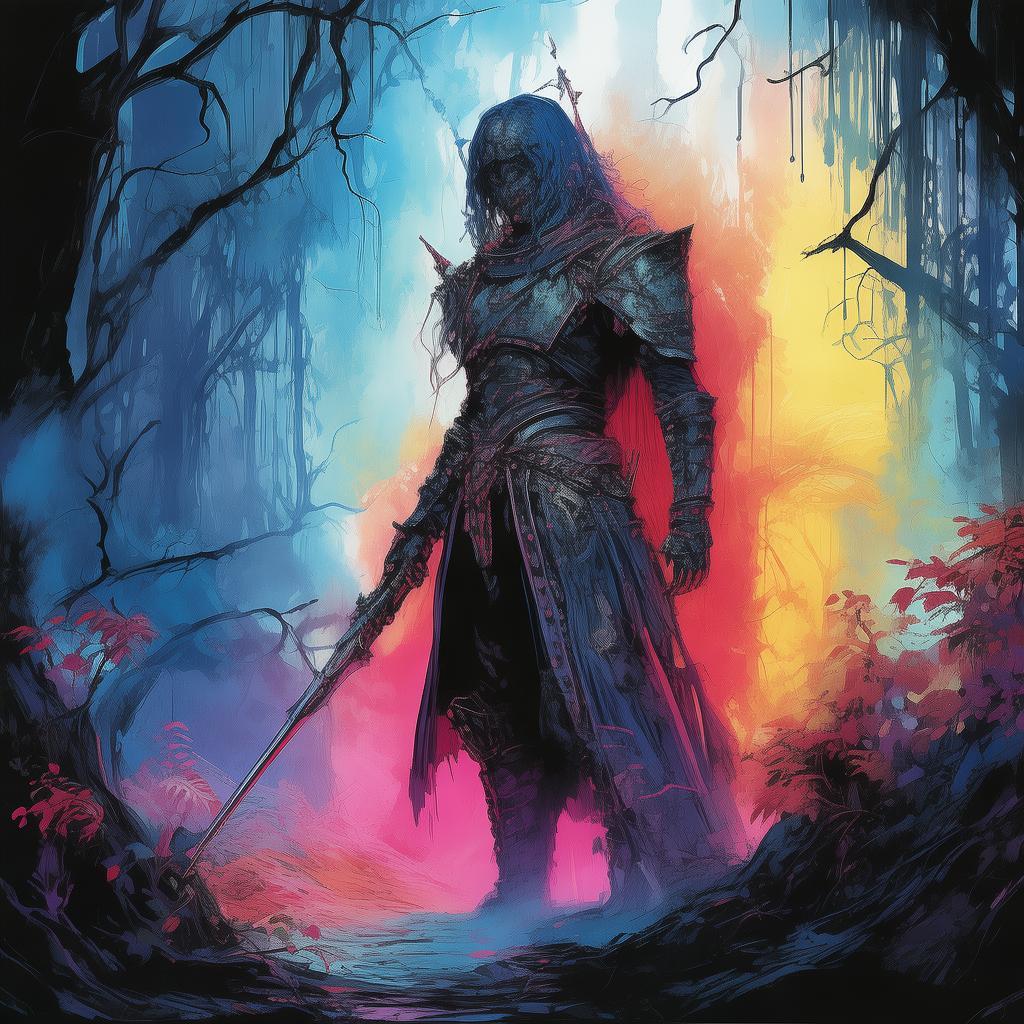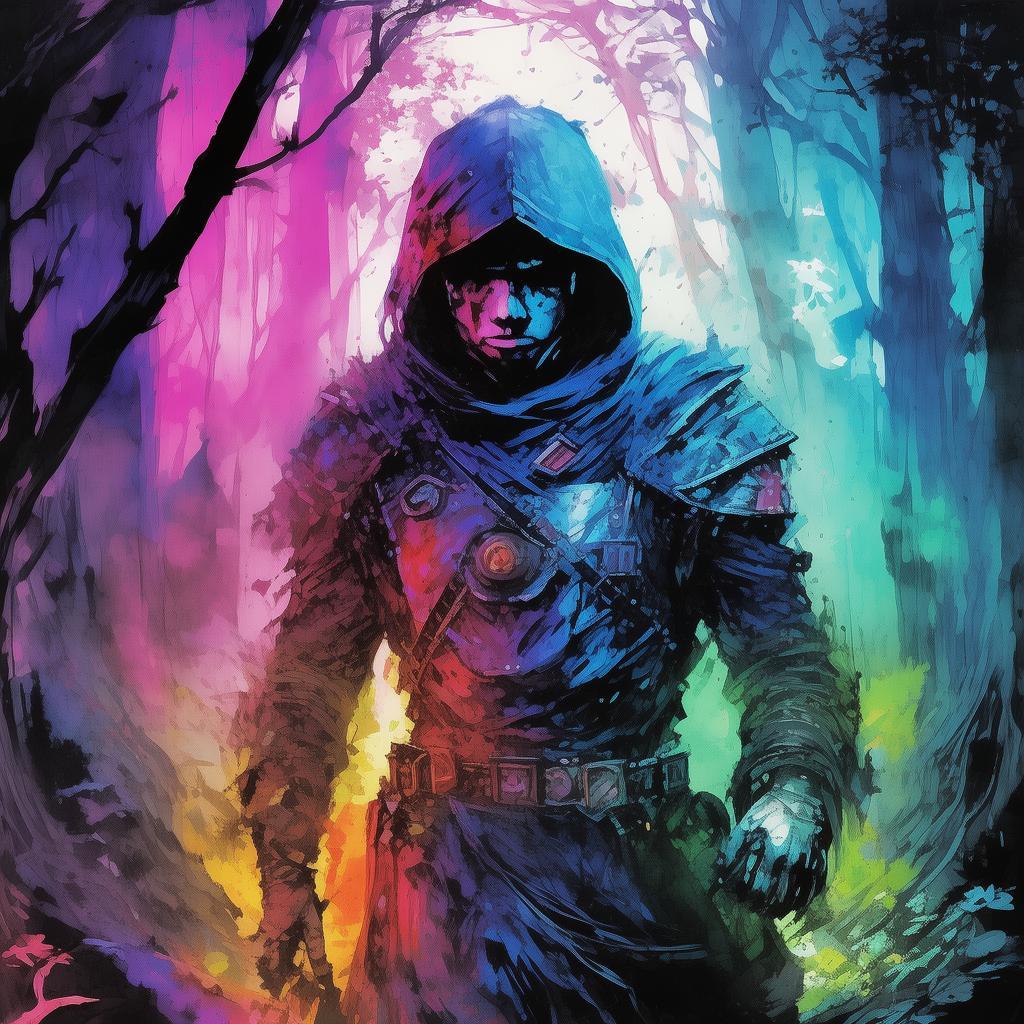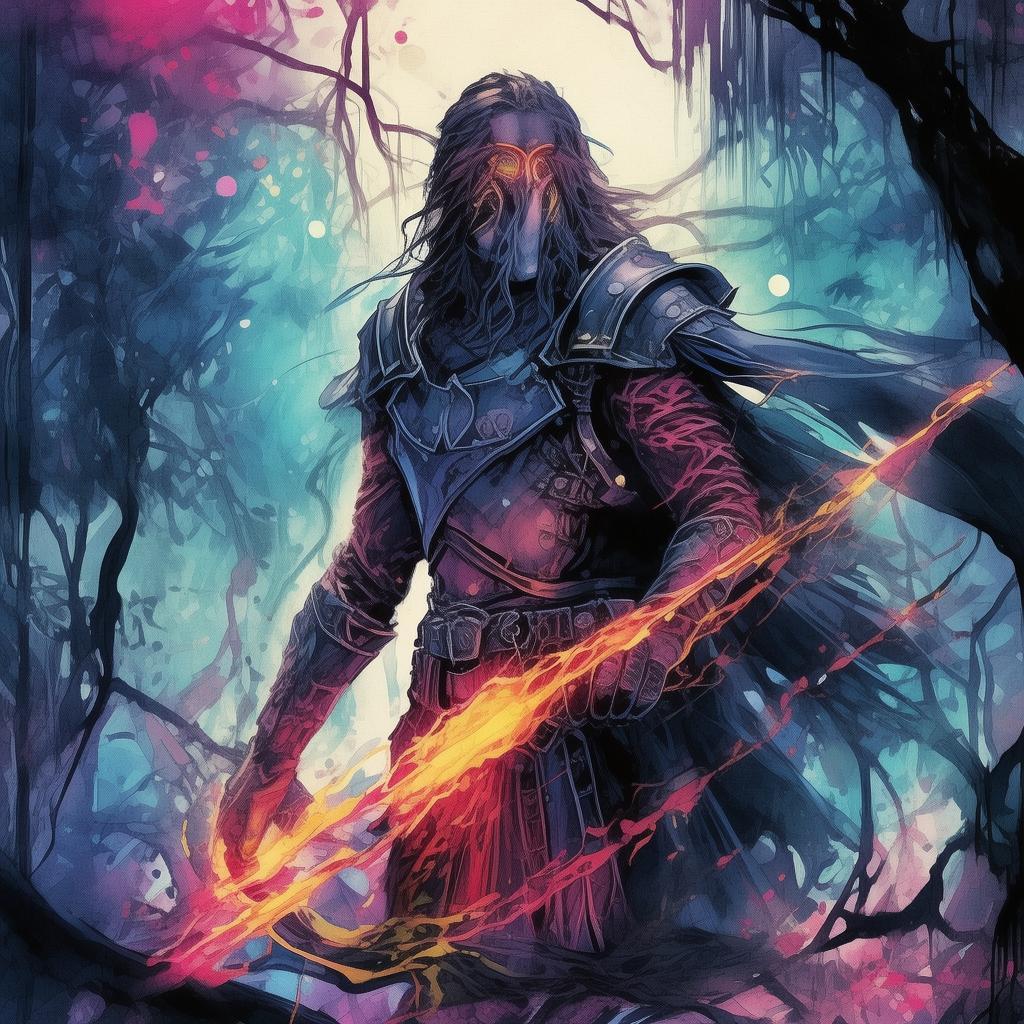The Fish-Lantern's Enigma: A Tale of the Waning Moon
The night of the waning crescent moon was one that the villagers of Lushan would never forget. It was said that when the moon was at its most slender, the spirits of the ancient forest came forth to weave their tales into the fabric of reality. That night, as the last remnants of the silver light kissed the earth, a fish-lantern, glowing with an otherworldly luminescence, was found by a young fisherman named Ming, who was out at sea with his nets.
Ming, with his face weathered by the sea and his heart as pure as the water he called home, was a man of few words and even fewer secrets. He had heard the legends of the fish-lanterns, but like many before him, he dismissed them as the whimsy of an old, superstitious folk. However, as he clutched the lantern in his hands, the warmth from its surface seemed to seep into his very soul, and he felt an inexplicable sense of purpose.
The lantern was unlike any he had ever seen. It was shaped like a fish, with scales that shimmered like emeralds, and eyes that glowed with a soft, golden light. As Ming examined it, he felt a sudden, powerful urge to set it adrift. He thought of the legend that the fish-lantern was a vessel for the spirits of the sea, and he feared that keeping it would bring misfortune upon him and his village.
With a heavy heart, Ming tossed the lantern into the churning waves. But as it drifted away, the lantern did not fade. Instead, it grew in intensity, and the villagers, drawn by its mesmerizing glow, began to gather. Ming was confronted by the oldest man in the village, a man who had lived through many a waning moon and whose eyes had seen more than most.
"The lantern is no ordinary fish," the elder said, his voice a mix of awe and fear. "It is a beacon for the spirits of the ancient ones. They seek the lantern for their purpose. You have awakened them, Ming. What will you do now?"

Ming, now filled with dread, realized the gravity of his actions. The village was thrown into turmoil as strange events began to occur. The crops failed, and the fisherman's nets returned empty. The children spoke in riddles, and the animals seemed to be communicating in a language no one understood.
It was then that the villagers decided to call upon an ancient ritual to appease the spirits. They lit torches and sang the songs of old, the melodies designed to sooth the restless souls. But the ritual did not bring peace. Instead, the spirits seemed to grow angrier, their presence more palpable with each passing moment.
Ming, now desperate to find a way to end the turmoil, returned to the place where he had found the lantern. The lantern, still glowing, had returned to shore. Ming approached it with reverence and placed his hand on its cold, smooth surface. "I am but a simple fisherman," he said, his voice trembling. "I did not seek to disrupt the balance. Help me find a way to return the lantern to its place, and the spirits will leave us in peace."
The lantern's eyes seemed to soften, and the glow became less intense. Ming reached out and carefully lifted it, feeling a sudden warmth and a sensation of being carried away on a wave of light. When the light faded, he found himself in the heart of the ancient forest, a place of towering trees and whispering winds.
Before him was a great stone altar, and upon it rested the lantern. Ming placed it gently and felt a profound sense of relief. The lantern began to glow even brighter, and with a burst of light, the spirits of the ancient ones were summoned. They spoke to Ming, their voices a symphony of echoes, and explained that they had chosen him as their intermediary, for he had shown humility and understanding.
In return, the spirits granted Ming a vision of their ancient tale. Long ago, a great warrior had sought to protect the forest from those who would harm it. He had used the fish-lantern to communicate with the spirits and to bind them to his cause. The warrior had become a guardian of the forest, and his legend had become entwined with the very essence of the moon itself.
With this knowledge, Ming realized that the lantern was not a curse but a gift, a symbol of the deep connection between the villagers and the spirits of the forest. He returned to his village, the lantern glowing softly in his hand, and shared his vision with the villagers.
From that day on, the fish-lantern became a part of Lushan, a reminder of the bond between humanity and nature. The rituals of the waning moon were once again celebrated, and the balance between the spirits and the villagers was restored. Ming, the humble fisherman, had become a guardian of the ancient legend, and the fish-lantern continued to serve as a beacon, a reminder of the mysterious and wondrous world that lay beyond the veil of reality.
✨ Original Statement ✨
All articles published on this website (including but not limited to text, images, videos, and other content) are original or authorized for reposting and are protected by relevant laws. Without the explicit written permission of this website, no individual or organization may copy, modify, repost, or use the content for commercial purposes.
If you need to quote or cooperate, please contact this site for authorization. We reserve the right to pursue legal responsibility for any unauthorized use.
Hereby declared.









